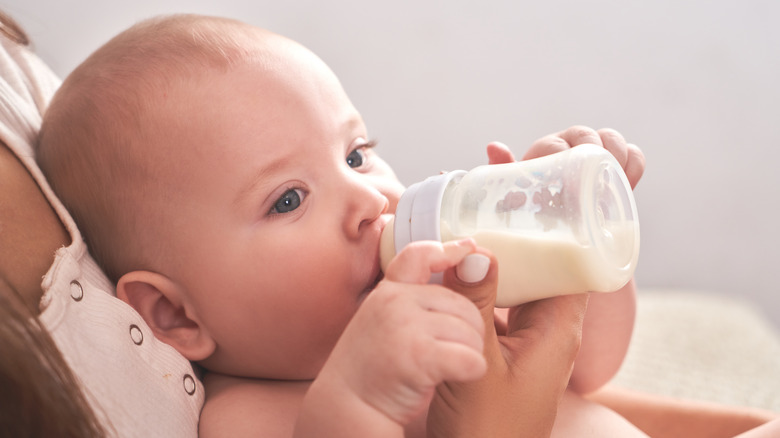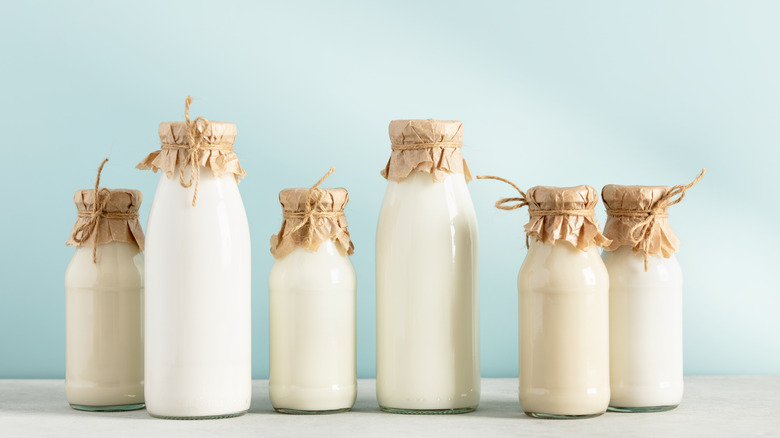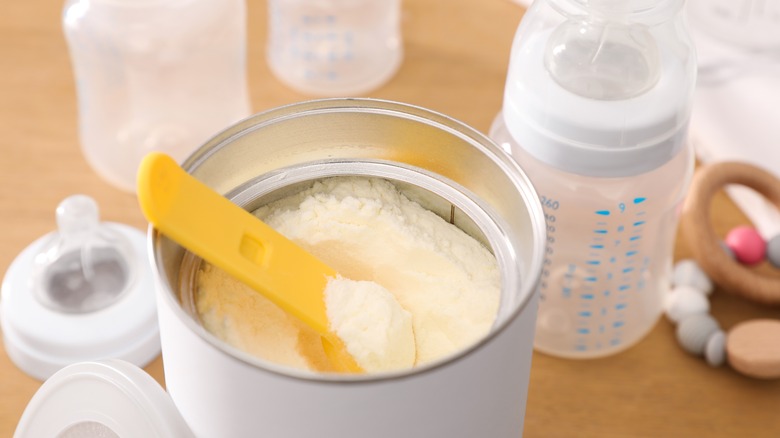NJ Poison Control Center's Dr. Diane Calello On What To Feed Your Baby If You Can't Find Baby Formula - Exclusive
The ongoing shortage of baby formula in the U.S. has made the last few months a daunting time for families who bottle-feed their babies. Parents have been desperately scouring store shelves or searching online in pursuit of formula — sometimes coming up empty-handed despite their best efforts. But keeping one's child fed is a non-negotiable responsibility, and parents have been scrambling for safe, accessible alternatives to formula.
This has proven to be a fraught enterprise. Recipes for homemade formula and suggestions for "natural" substitutes have proliferated online, along with conflicting information about what is and isn't safe for babies at different stages of their development. Concerned parents must not only struggle to keep their babies nourished, but also figure out how to evaluate all this information.
Dr. Diane Calello, executive and medical director of the New Jersey Poison Control Center at Rutgers New Jersey Medical School, has been helping families navigate this difficult situation. In an exclusive interview, she shared her advice for keeping your baby safely nourished in a worst-case scenario.
Seemingly wholesome substitutes aren't always baby-safe
If you've spent any time on social media in the last few months, you've probably spotted memes touting goat's milk or soy milk as nutritious, natural substitutes for baby formula. At first glance, this sounds reasonable — after all, both are regularly and safely consumed by older children and adults, especially those with intolerances to cow's milk.
But as Dr. Diane Calello warns, babies aren't simply smaller versions of us: Their nutritional needs and abilities to properly digest and process food are distinctly different from ours. For starters, they're growing much faster than their older brothers and sisters, and thus need more of certain nutrients to stay on a normal growth trajectory.
"Even if the substance itself is healthy, it won't have adequate amounts of things like calcium, iodine, magnesium, and others that are essential to infant brain development," Dr. Calello said. She added that homemade baby formula substitutes pose similar problems.
"Homemade formula may lack adequate protein or other essential nutrients," she said. "Also, if the formula is either too concentrated or too dilute, the delicate salt and water balance in the infant's body can be disrupted, causing brain and other organ damage."
In emergency situations, some alternatives work for short-term use
If milk alternatives and homemade formula are nonstarters, what are parents supposed to do if they've tried and failed to obtain their normal baby formula? Dr. Diane Calello suggests looking online as well as consulting with your pediatrician, who may be able to point you to other sources of formula that you may not have known about. If your baby is generally healthy, you can use specialized varieties of commercial formula if the one you normally buy isn't available.
"If an infant usually takes regular formula, and the only product available is a specialized formula (for example, for premature infants), that is safe for the healthy infant," she said. "However, if the baby requires a specialized formula that the family cannot obtain, it is vital that they discuss suitable substitutes with their pediatrician before making an assumption."
If your baby is a bit older, you have even more short-term options. "If the child is close to one year of age, it is safe to use toddler formula, or even regular cow's milk," Dr. Calello said. "Cow's milk may also be used after six months of age if absolutely necessary, but this should only be done short-term, as infants can develop milk allergies."
For more information about baby formula and safe substitutes, visit the New Jersey Poison Information and Education System's website in English or Spanish.



